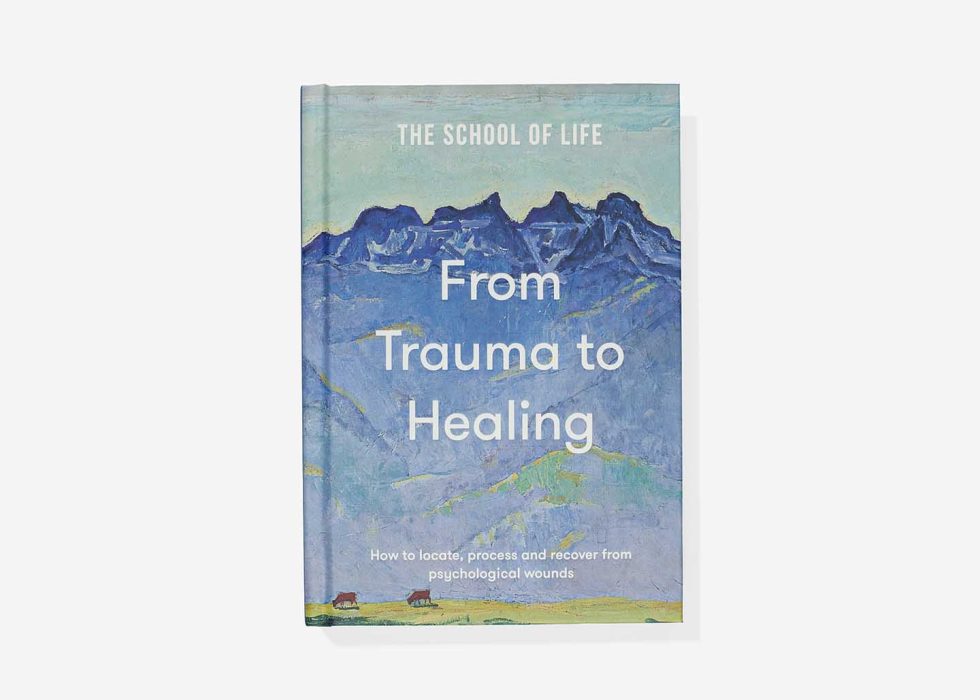Self-Knowledge • Trauma & Childhood
Self-Archaeology
The most fundamental idea at the heart of modern psychotherapy is that in order to heal ourselves from our neuroses in the present, we have to understand what went on in our childhoods.

Though this thesis makes impeccable theoretical sense, there is one enormous problem with it: amnesia. Simply put, almost no adult remembers a single thing that happened to them before they were three years old: countless days and nights, a succession of complicated moods, sensations and events will have vanished into thin air, like a library of precious books that is sent up in smoke or dumped unceremoniously into the sea. Furthermore, most of us remember very little of what went on before we were seven. This may seem like an obvious point, but it has momentous implications. A period that we’ve identified as extremely central is also going to be entirely nebulous.
Another basic fact of every childhood is that even though the past may have been extremely strange and regrettable, it will also — in key ways — now seem rather normal and beyond easy analysis or questioning. Our childhood is — quite literally — what we’ve grown up with and, as we know, what has always been around has a habit of not signalling its oddity. We might sense that something was peculiar around our caregivers but to really get a proper understanding of what these people were up to tends to be far beyond our ordinary powers. We prefer to think of something else — and to run fast in an opposite direction.
This fixes us in a conundrum which entrenches our neuroses. But there is one extremely useful way to make progress: we should look at ourselves in the present. Everything we need to know of the past is contained in what’s going on for us right now. We don’t need to try to remember all sorts of things that have in reality escaped us totally; we just need to check in on who we are today. The legacy of the past will be active, rich and vibrant (for better and for worse) at every moment of our adult lives.
One of the first questions we need to ask ourselves — as archaeologists of our pasts — is what, day to day, in the adult realm, we are afraid of.
Let’s imagine a list of someone who is asked to complete the sentence ‘I’m terrified of…’:
— I’m terrified of being thought an idiot
— I’m terrified of being found ugly and unacceptable.
— I’m terrified of being arbitrarily humiliated, mocked and rejected.
— I’m terrified that people will be extremely nasty to me.
What we dread at the hands of everyone we meet nowadays will inevitably be a version of what we once feared at the hands of very specific caregivers in a very specific and yet very forgotten childhood.
This gives us a huge amount to go on; indeed, it offers us nothing less than the tools for our recovery. It means we can take our list as an archaeological map to guide our thinking. The self questioning might go like this.
Someone terrified you of being an idiot: who might it have been and how did it happen?
Someone found you ugly and unacceptable: what might have occurred here?
Someone has, it seems, arbitrarily humiliated, mocked and rejected you: does that ring any bells?
Someone probably gave you an experience of extreme nastiness: is this somehow familiar?
Though we might not be used to thinking in this way, with such prompts at hand, rich and vibrant thoughts may rise up from the unconscious. We might get a new perspective on our caregivers and on what we underwent. Framed in this way, we might see with newfound clarity that quite a lot more was going on in those early days than we generally like to imagine.
What will be the next step? We’ll need to go back over the past, with a lot of patience and courage, while also bearing in mind that what we have been projecting willy nilly onto every man and woman in the present, and every difficulty we face in the here and now, actually had very particular origins — which, the more we understand them, the more we’ll feel liberated and unburdened.
Our future won’t have to feel so constantly difficult or fear-laden once we trace back its real difficulties to a point of origin. As psychotherapy has always insisted and promised, remembering truly will set us free.



























